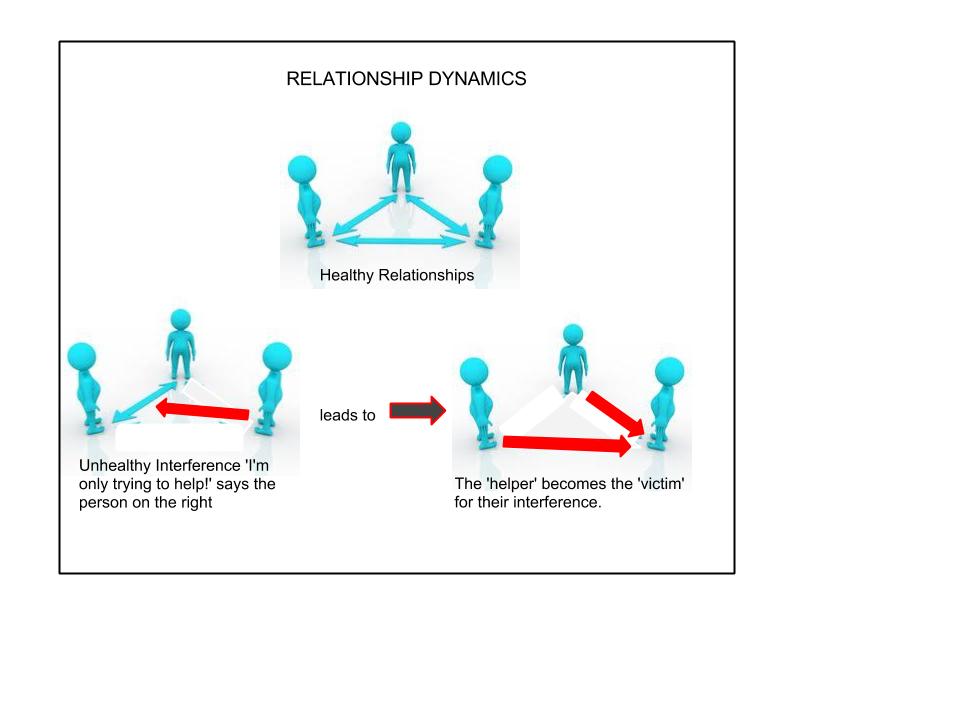In my counselling experience I have found that triangular relationships in families can cause broken relationships. The ‘helper’ in the family can’t understand why the family turns against them when all they’re doing is ‘trying to help’. The one ‘fixing things up’ is often the wife or mother, which is understandable … BUT… It usually achieves the opposite!
Intervening, or stepping into the middle of a conversation, usually an argument between two other people, trying to sort them out, is only going to lead to disaster.
“I can’t let him talk to the children like that!” thinks the mother and reprimands her husband in front of the kids, instead of discussing it privately.
Discussing the matter privately is vitally important as children need to see their parents as a unit. The interference doesn’t help and only adds more stress. It’s not surprising that they turn on the so-called ‘helper’ and the ‘helper’ then becomes the victim. Interfering shows a lack of respect on the part of the helper towards those she wants to help. If you tell other people what they should do or say all the time it is only going to lead to anger and resentment (click here for Faulty Thinking Patterns)
Triangular relationships are very common in codependent relationships (Click here for more about that) where the one partner is always trying to fix things up and keep everyone happy. You have been warned! The tables will turn and you will become the victim.

- Do you feel victimized by others when all you’re doing is ‘trying to help’? If the answer is yes, you’re probably guilty of interfering unhealthily in other people’s relationships.
- As you’re about to open your mouth to sort out someone else’s relationship issues ask yourself if it is really your problem. To this question many mothers reply that how their husband talks to their child IS their problem, after all they’re HER children and so she HAS to intervene. Actually they’re both of your children and as I said before …. Discuss it privately, with your partner.
- If your children complain about the other parent, help them to talk directly to that parent, rather than you becoming the messenger. If the children complain, stick to empathy, sticking to the ‘feeling’ words …. “Yes, I could see you were upset when Dad (or whoever) spoke to you....” and then encourage them to talk to that person. about the problem.
Have a wonderful week!
Karin